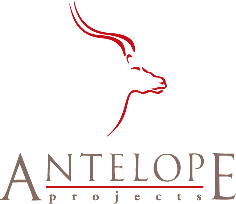
 |
risk brokerveryard projects > business relationship management > risk broker |
| we offer | risk broker | material | links | ||
| consultancy
management briefings and technical education independent advice on tools and methods |
In dealings between multiple organizations, the traditional way of
guarding against moral hazard is through contractual obligations.
However this leads to distortion, inefficiency, inappropriate game-playing
and/or excessive contingency.
veryard projects is working with other partners to develop systemic and institutional alternatives, to support new demands for openness and transparency, as well as new modes of cooperation and joint venture. |
risk management
|
 |
Conceptsveryard projects > risk broker > concepts |
 |
Procurement examplesveryard projects > risk broker > procurement examples |
The customer indicates that there is an immediate requirement for a small volume, with a possibility of larger orders later.
There is a significant set-up cost. For a training course, this includes the development and production of the training material.
You have three choices:
(b) Set a lower price for the training course, on the assumption that it will be given many times. If this assumption turns out false, you will lose money.
(c) Charge the customer separately for the development and delivery of the training.
Option (c) loads the uncertainty onto the customer. If the customer is any good at negotiating, he will demand a reduced rate in return for shouldering this risk. So this could turn out to be less profitable than (b).
Option (b) ought to be the best option for the supplier - but only if he isn't being tricked or seduced by the customer. How can the supplier get a fair estimate of the likely volume of repeat business?
Option (c) could be the best option for the customer, provided he gets something in return for shouldering the risk. In other words, the likely total expenditure will be lower. And as long as he isn't paying for trivial changes to existing material.
Key question for the customer: is the development genuine, or am I being asked to pay for work that has already been done for another customer?
It gets more difficult where there is an element of research in the project - in other words, something with greater uncertainty of outcome. "We will reuse software components - but only if we can find any suitable ones, otherwise we will build them ourselves." What is the incentive for the software supplier to reuse existing software components, when the customer will pay for new ones to be built? Who should bear the risk - or how should the risk be apportioned?
With IS contracts, there are several key sources of uncertainty:
A party to a contract may be required to make best endeavours to achieve some outcome, or to mitigate some risk. There are always going to be questions about the degree of conscientiousness or sincerity with which the other party's interests are represented. This is known as moral hazard - it may not be in your own best interest to always act in the interest of your customer, or to tell the customer the whole truth.
On the other hand, there may be perfectly good reasons (including commercial sensitivity or intellectual property) for witholding some information from your customer. You cannot let the customer just crawl all over your information systems, even if you could stand the transaction costs of this.
One of the functions of the risk broker is to act as proxy risk
owner within company A's risk management system, for a risk that is primarily
of interest to company B. In theoretical terms, it changes the topology
of risk (in terms of power, proximity and interest) across the organization
boundaries. In practical terms, it's a way of guarding against moral hazard,
while respecting the commercial privacy and intellectual property of both
parties.
| Procurement
Risk Management |
 |
Risk Management Servicesveryard projects > risk broker > services |
This enables an organization to select a business partner based on the required risk profile, as well as on the available services and the usual quality and cost parameters.
It also supports the building of coalitions or consortia that are "risk-optimal" - whatever that means.
This creates a framework for risk-taking commercial activity. This framework provides a basis for the identification and negotiation of new commercial relationships, and for the assessment and perhaps renegotiation of existing relationships.
We then design and implement mechanisms (including risk escrow and information escrow) to mitigate these risks, allowing for a more "risk-optimal" contract.
Whereas lawyers traditionally support this process by thinking about all the ways that the other side could screw things up, and writing complicated clauses to protect their client.
* identify contractual improvements of potential benefit to both sides
* install and/or connect risk management systems on both sides
* perform formal risk audits within the context of a formal contract. (These audits would be regarded as relevant evidence of due diligence, among other things.)
* provide evidence of due diligence (or its absence) to any formal dispute procedure
* plan transition to new commercial arrangements

|

 |